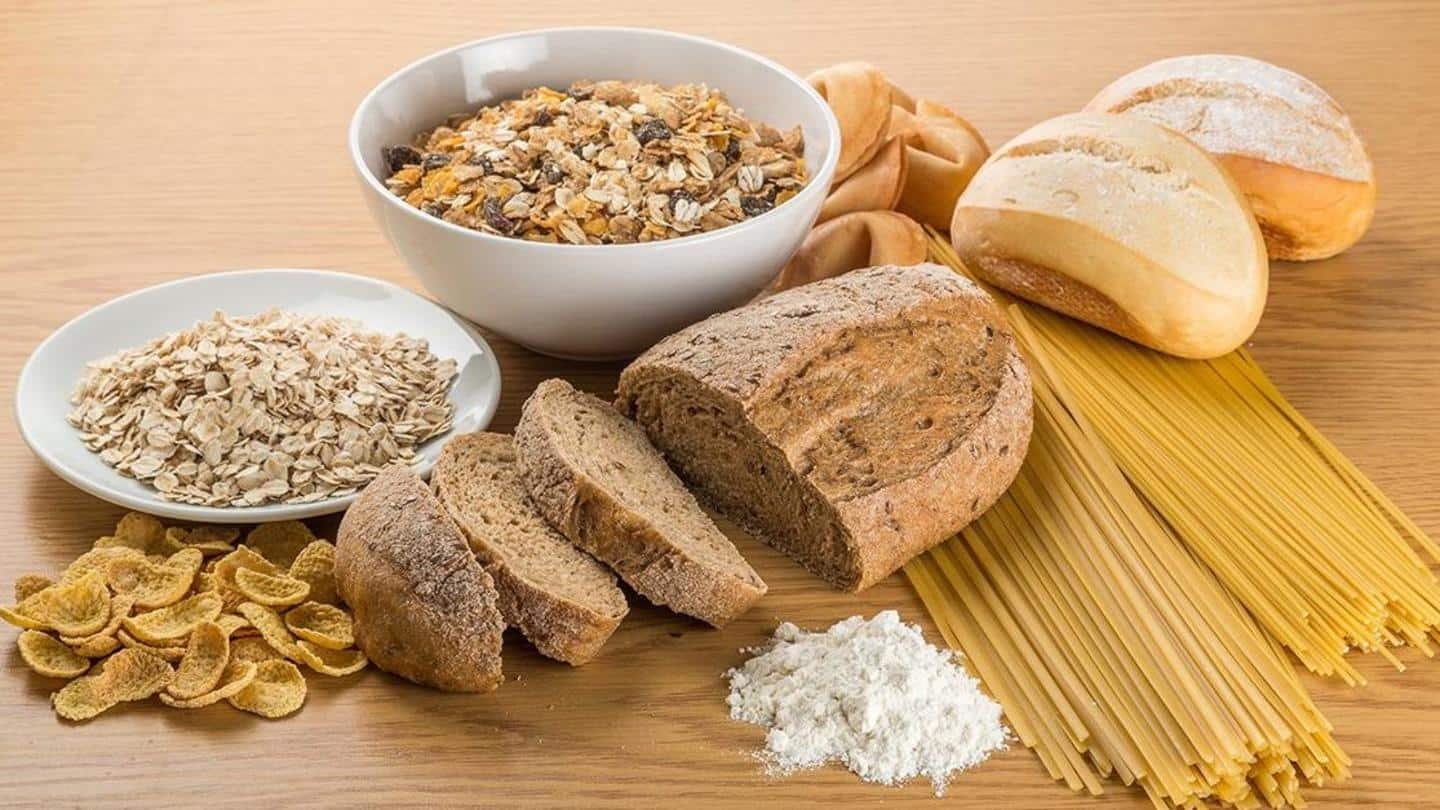
What is gluten intolerance? Its symptoms and foods to avoid
What's the story
Gluten-free diets are a growing trend, with eateries catering to gluten-intolerant customers with specially customized menus.
But what exactly does gluten-intolerance mean?
Gluten is a component is commonly found in grains, including wheat, and is responsible for the elastic, chewy texture.
However, certain individuals have adverse health effects upon consuming foods containing gluten.
Here's everything to know about gluten and the intolerance toward it.
Gluten
It is a protein that is naturally found in grains
Gluten is a family of proteins that are naturally found in grains.
These are present in different forms in different grains.
For example, glutenins and gliadins are found in wheat, while secalins are found in rye.
When heated, gluten becomes elastic in nature and imparts a soft texture to the food.
Hence, it is also used as an additive to improve texture in foods.
Celiac disease
Celiac disease, caused due to gluten-intolerance, results in intestinal damage
Gluten intolerance is a condition where the body develops certain health issues as a result of ingesting gluten.
Celiac disease is an autoimmune condition that is caused due to gluten intolerance.
This is a disease where the immune system attacks certain cells of the small intestine when a person consumes gluten-based foods.
Permanent intestinal damage is one of the many repercussions of celiac disease.
Other conditions
Some other conditions that can result from gluten intolerance
Though an individual may not test positive for celiac disease, their body can cause several issues due to gluten intolerance.
This is called non-celiac gluten sensitivity (NCGS).
Common symptoms of NCGS include brain fog, bloating, fatigue, headache, and abdominal pain.
NCGS can be confirmed by a doctor based on a person's symptoms and do note that there are no lab tests to support it.
Symptoms
Most common symptoms that point at gluten sensitivity
Symptoms of gluten intolerance vary from person to person.
It is also to be noted that some gluten intolerant people do not exhibit any symptoms, and this leads to unresolved celiac disease or NCGS.
In those who show symptoms, the most common ones are digestive issues like diarrhea, bloating, abdominal pain; skin issues like rash and eczema; and neurological issues like anxiety, numbness, and depression.
Gluten-free foods
Avoid foods that contain gluten like crackers, bread, pasta, cookies
As mentioned above, gluten is naturally found in grains, and excluding foods that contain it helps in avoiding adverse effects in gluten-intolerant people.
Whole wheat, wheat bran, barley, rye, kamut, couscous, semolina, and wheat germ are some grains containing gluten.
Most common foods containing gluten are crackers, bread, pasta, cookies, pastries, malt vinegar, soy sauce, sauces thickened with flour, beer, and certain types of wine.